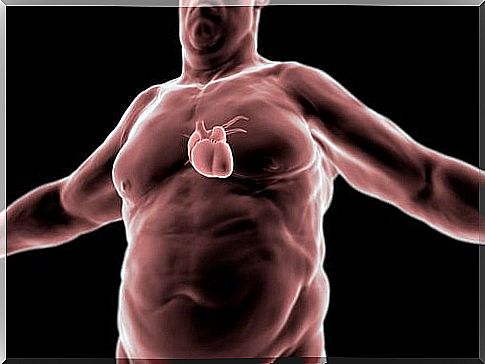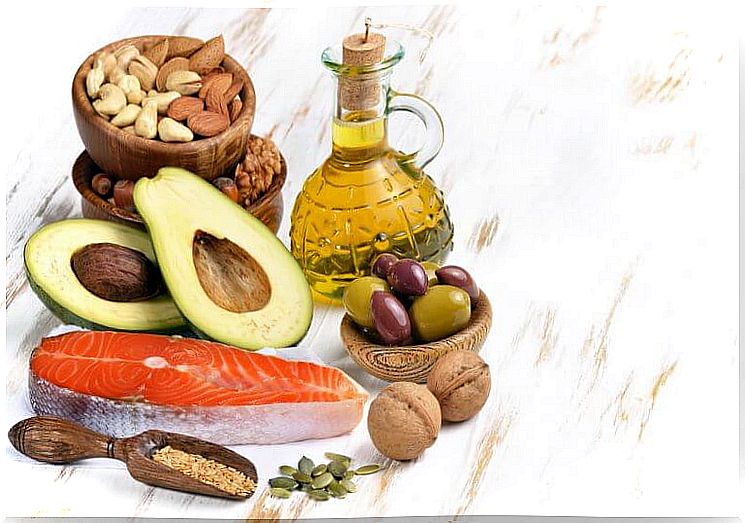What Is A Ketogenic Diet?
The ketogenic diet reduces carbohydrate intake to promote fat burning. It provides us with energy, is satiating, and it helps us take care of the health of our internal organs.

Losing weight is gaining health. This premise has become the spearhead of those who bet on improving their quality of life. The ketogenic diet is one of the many options available when looking for an effective methodology.
This is a nutritional option where the proportions of carbohydrates in the menu are significantly reduced. What is the goal ? Promote the oxidation of fats, making the body an efficient machine to burn them.
Along with this process, the formation of ketones is produced when few carbohydrates and moderate amounts of protein and good fats are ingested.
Ketones are used by the body as an alternative fuel when there is low blood sugar.
The ketogenic diet produces more energy
The ketogenic diet is great for weight loss. With this practice, insulin levels are reduced and fat becomes the body’s main energy driver.
This way your fat stores become more vulnerable and losing weight will no longer be an impossible task.
The liver plays an important role in this process. In fact, it’s responsible for turning fat into ketones, which will nourish your muscles, heart, and brain.
With this strategy, you will be fuller, less hungry, and have more energy during the day. Essentially, you should be eating more fat and less carbohydrate.
More vegetables

This diet acts like a switch, as it generates many internal and external changes. If the principle is to eat less carbohydrates, the ones you are going to eat should come from vegetables.
The rule is that you can’t eat more than 50 grams of carbohydrate per day, or about 100 grams of bread.
Flours, pulses, refined sugars, tubers and certain fruits must therefore be eliminated.
Calories should be concentrated in all proteins and healthy fats, such as olive oil, dried fruits and avocado. Also make room for fish, lean meats and chicken.
Benefits of the ketogenic diet
Your body will thank you if you put this diet into practice. The benefits they bring to the body are diverse:
1. You will control your appetite
It is an effect of all low carb diets.
By increasing protein and healthy fats on the daily menu, your appetite is reduced because you are fuller with meals, which allows you to eat fewer calories and lose weight.
2. You will lose weight more easily
The less carbohydrates, the less weight. With the ketogenic diet, you can lose two or three times the weight when you decide to consume less fat. Plus, you can maintain your ideal weight for longer.
3. You will eliminate body fat
When we talk about fat, we are not only referring to the fat that is reflected in the mirror, but also the fat that surrounds every organ.
It is known as visceral fat and is more dangerous than body fat because it is one of the main factors causing metabolic syndrome.
4. You will say goodbye to heart disease

With the ketogenic diet, cholesterol levels are improved, and a higher percentage of good cholesterol occurs, “HDL” and “LDL-C”.
Triglyceride levels drop and blood pressure drops. This reduces the risk of cardiovascular disease.
5. You will balance insulin and fight diabetes
This diet leads to better control of the amount of glucose in the blood, as it generates greater sensitivity to insulin.
On the other hand, in patients with diabetes, this diet plan helps reduce their consumption of drugs.
Cons of the ketogenic diet
When it comes to starting a nutrition plan, therefore, it is important to look at the side effects it can cause.
While there are many benefits to the ketogenic diet, there are also factors to consider before implementing it.
1. Less vitamins and minerals
Because the diet is based on fat and protein, a low intake of fruits and vegetables results in low levels of vitamins, minerals and fiber which can trigger constipation, among other things.
2. Bad breath or halitosis
Due to the decrease in hydrates in the diet and the generation of ketones, bad breath can occur in addition to fatigue.
Dietary fats for the ketogenic diet

In this diet, fats play an important role. Hence the importance of knowing which to consume and which not to consume.
It is a question of how to choose, since processed products always cause damage to our body. They are classified into three groups:
1. Very good fats
- Fatty fish
- Coconut
- Eggs
- Omega 3
- Dried fruits
2. Good fats
- Lean meats
- Butter
- Milk
- Cheese
- Olive oil
- Pistachio
- Lawyer
3. Bad fats
- Margarine
- Vegetal oils
- Sweets
- Fried foods
In short, the ketogenic diet is one of the many options that you can consider if you want to start a new eating plan.
I s there are many benefits to be gained and some disadvantages to know.
Always take into account the observations of a specialist. The nutritionist should be your primary guide. Even if you already have this information in mind, talk to him and try to figure out what is best for your body.









